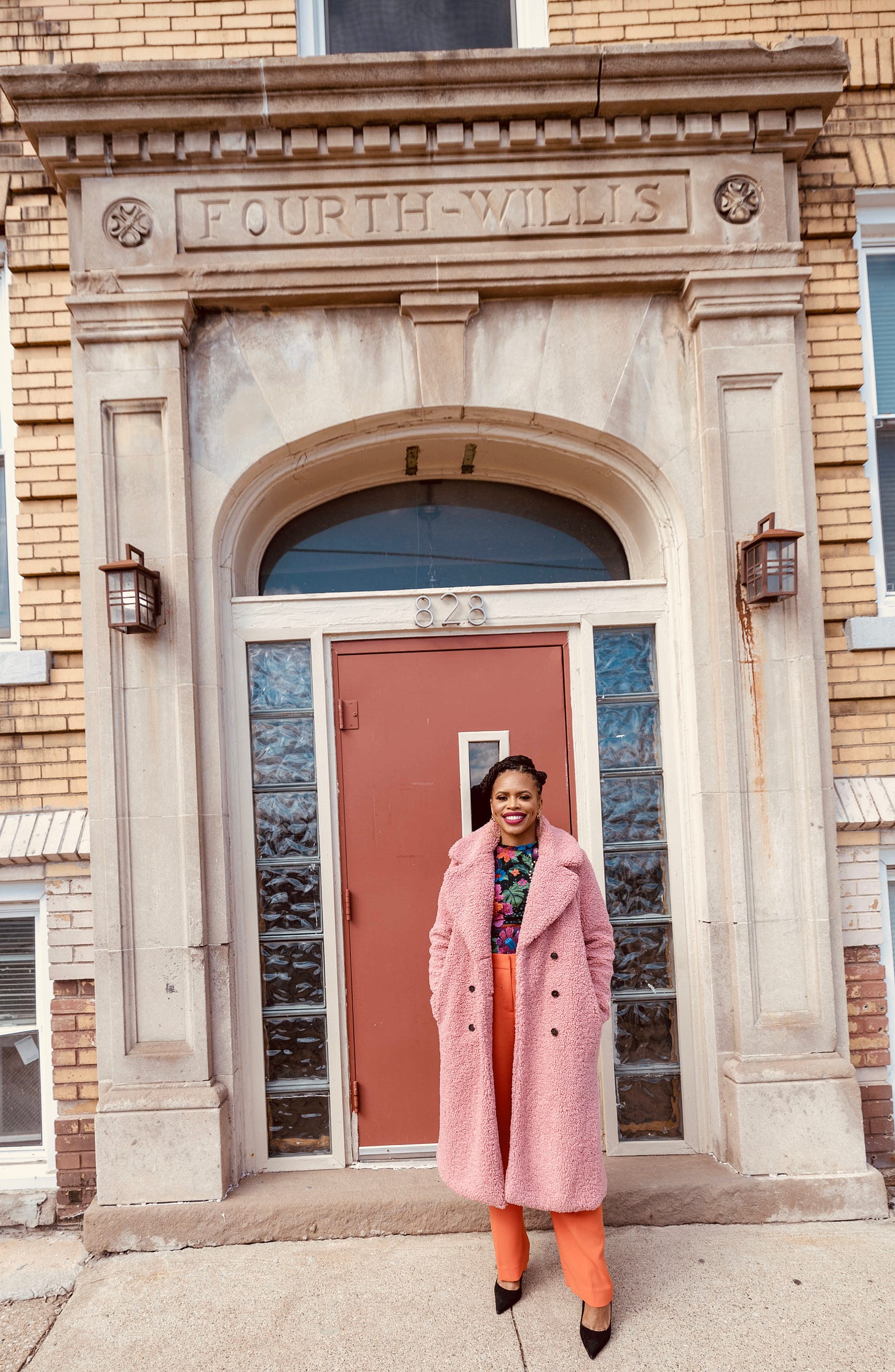We evolve inside of our relationships. That includes: partnerships, parent-child relationships, and friendships. Our roles shift and change. Sometimes the shifts feel huge and significant, and other times they are subtle.
I had a friend that used to always borrow my power drill, and then it came to a point in our relationship where I decided she needed to get her own. We joked about it and said it was proof that she was really grown now.
Most of my friends from early on in high school would likely say I’m mostly the same as I was back then, but there are some differences. There are areas of my life where I know better so now I do better. I have access to different tools and resources, but I feel like the core of me is the same. I appreciate the people in my life who have allowed me those differences, and haven’t gotten stuck on who I used to be.
In long term relationships with family and friends you have to:
Give people the space to become who they are.
This is healthy. One of the most important things you will do in life is figure out who you are. Over the course of a relationship we become different versions of ourselves.
Recognize that in the life of a relationship you and the other person may drift apart and then back together again and again.
Life’s transitions and shifts in interests can cause a natural ebb and flow inside of a relationship. Just because something is shifting doesn’t mean it’s ending. Honor where you are in the relationship and give it room to take on a new shape.
Understand that people are not going to stay who they were when they were 12, or 16, or however old.
Hanging on to who someone was can create a lot of tension inside of a relationship, and it also prevents you from learning and possibly appreciating who they are now.
With family it can be more challenging to accept these changes. I talk about that a lot in my new book, Drama Free: A Guide to Managing Unhealthy Family Relationships. Family, parents and elders in particular, can have a hard time embracing the ways we evolve because they had a certain degree of control over who we were when we were children. Sometimes they see the difference in us as judgment of who they are or how they raised us, but it’s not. It’s just a natural part of life.
Journal Prompts
How are you different now versus ten years ago?
How have your relationships with the people around you shifted as you have evolved? How have people received those changes?
A Few Things That Caught My Attention This Week
Did the Pandemic Change Your Personality? Possibly., by Christine Chung in The New York Times.
Unexpected phone calls: A modern horror story - The Washington Post
Trauma and Boundaries with Nedra Tawwab on the Authentic Parenting podcast, hosted by Anna Seewald. You can listen to this episode on Apple Podcasts, Spotify, or wherever you stream podcasts.





Love this share Nedra. I’m realising that who I am is fluid. 10 years ago I was an entirely different human because of the circumstances life had presented at the time and the period of growth I was going through. I did what I thought was best based on my level of consciousness at the time. The more I’ve leaned into my intuition and followed my souls path, the more awareness I’ve gained about who I am each step of the way. As a result, the dynamic of my relationships shift too.
Life is really a series of mini births and deaths. A constant rediscovery of who I am as I walk my path.
Thank you for all the time and energy you put into the work you do to make this world a brighter place 😊🙏🏽
Crossposting this gem. Thank you 🫶